Time: The Final Frontier
Baba Ram Dass, Abe Heschel, and the danger of living in the Eternal Now
I. Lost Horizon
The same thing that happens to a society that loses its capacity for awe and wonder about things past: Time becomes irrelevant, tomorrow is a mirage, history is a fiction, and hope and progress, by definition, disappear.
Our inability to see ourselves in time, in history — as people who are inextricably linked to our ancestors and our descendants — is a recurring lament these days:
“We have trained ourselves… to obsess over the present… and cast the long term out of our minds, as we might spit out a poison.”
II. Transcending Time
This obsession with the Now represents the triumph of a particular way of thinking that sounds benign at first, but really isn’t:
Who was Ram Dass?
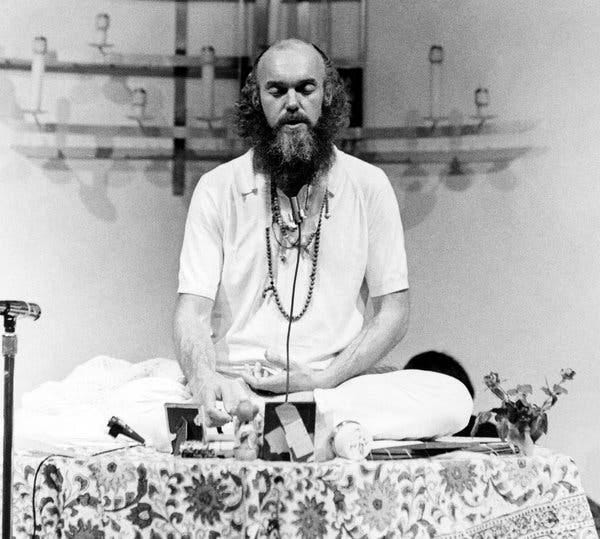
Ram Dass (born Richard Alpert; April 6, 1931 – December 22, 2019), also known as Baba Ram Dass, was an American spiritual teacher, guru of modern yoga, psychologist, and writer. His best-selling 1971 book Be Here Now, which has been described by multiple reviewers as “seminal,” helped popularize Eastern spirituality and yoga in the West…
His parents were Gertrude (Levin) and George Alpert, a lawyer in Boston. He considered himself an atheist during his early life. “My Jewish trip was primarily political Judaism,” he said. … “[I was] inured to religion. I didn’t have one whiff of God until I took psychedelics.” … “What I mostly remember about my bar mitzvah was that it was an empty ritual. It was flat. Absolutely flat. There was a disappointing hollowness to the moment. There was nothing, nothing, nothing in it for my heart.”
III. Richard Alpert, meet Abe Heschel…
Walking away from Judaism, Ram Dass found a new home among Eastern mystics who look at the world and insist that “later never exists.”
Not true, says Abraham Joshua Heschel. Time is not a fiction. The future is not an illusion. History is not a mirage. From Heschel’s The Sabbath:
Shorter version:
IV. To Story or Not To Story
Abraham Joshua Heschel and Ram Dass…
… offer two radically different visions of reality.
Ram Dass says: Be Here Now. Because whatever Story you’re telling yourself about the world and your place in it is a fantasy. You made it up. It’s a dream. A figment of your imagination.
Heschel disagrees. He sees himself as a character in a Story that reaches back to the moment of Creation and forward to the redemption of the world. He is one link in a long chain of Jewish sages and storytellers who have kept Hope alive by keeping The Book and its Story at the center of Jewish life for thousands of years.
Or in the words of Amos Elon1:
Is there a way to keep hope alive without time and memory? Without some “connected narrative of history”? Without a Story that you can live by and call your own?
I don’t know. Maybe there is. But I haven’t been able to find one.
Have you?
Yes, I realize that I share that Amos Elon quote rather frequently. But don’t think of it as a rut. Think of it as a tradition. 😊



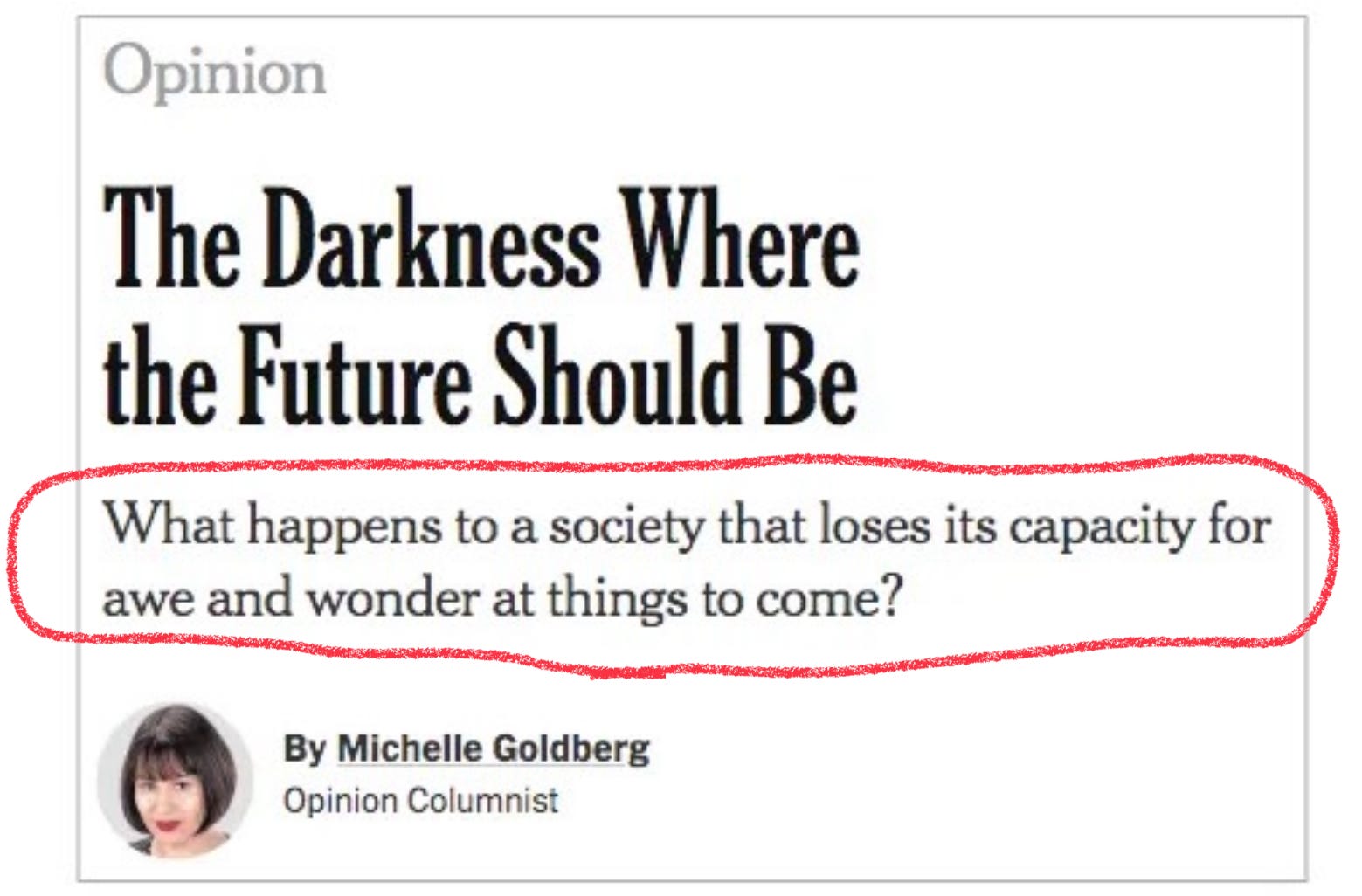
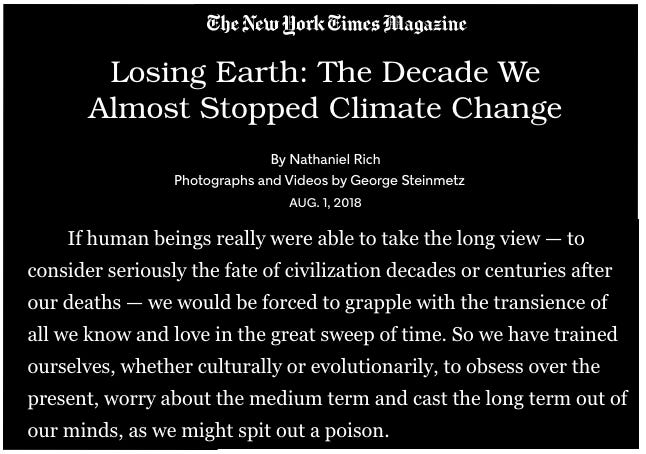
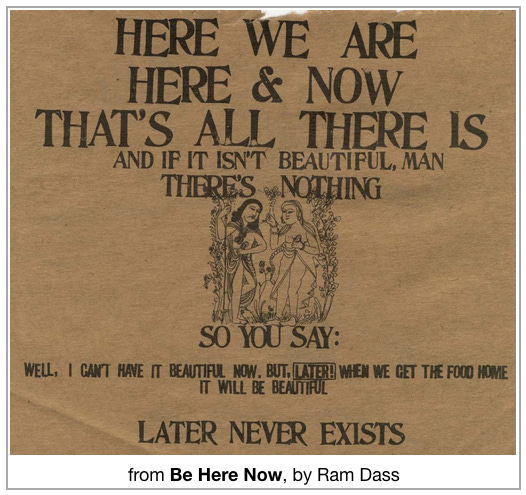
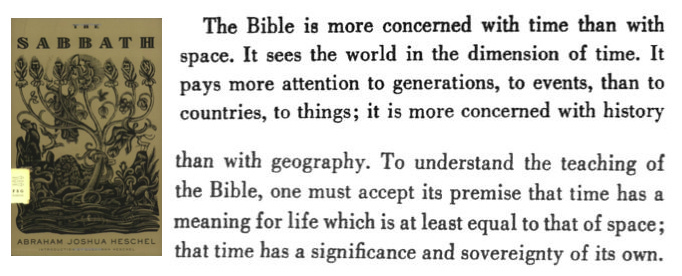
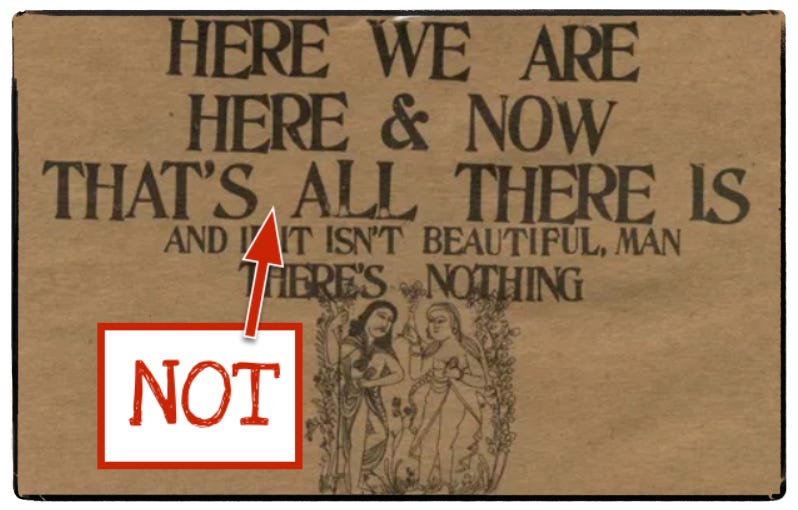
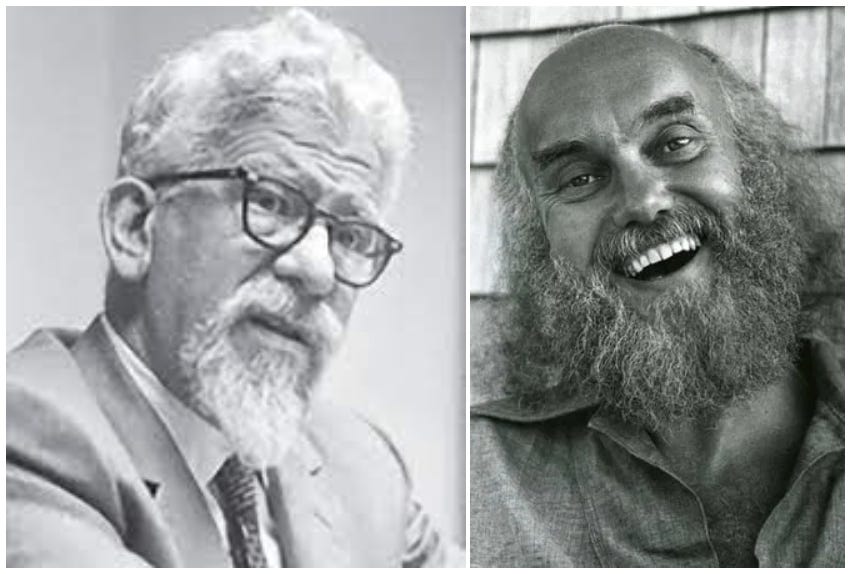
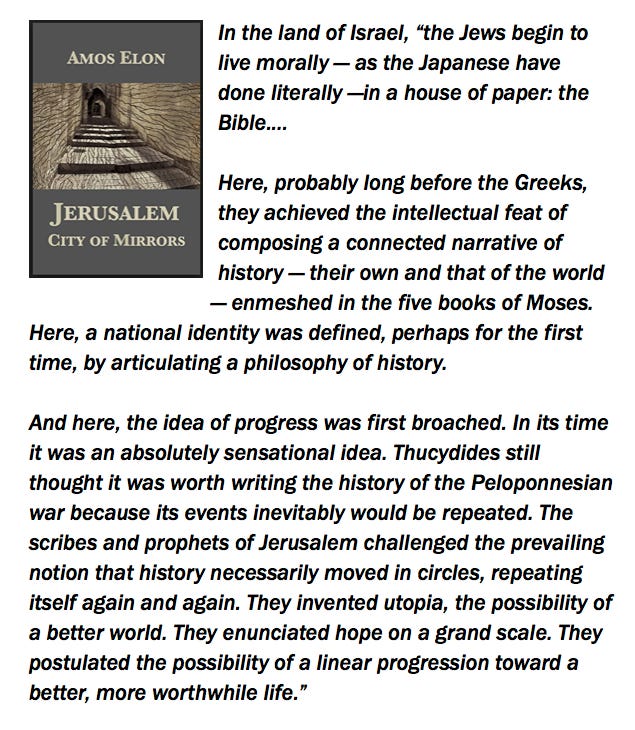
„Here and now is all we´ve got“ seems to me as a ‚true‘, or understandable sentence, true in the way that what we experience or are aware of or ‚have‘ now, is truly happening, no one can take this away even if from one second to another it can all split up, be devastated and be ‚over‘ - like for many on 'October 7‘ -, so enjoy it, but without making more of it than it is or seems.
While “Here and now is all there is“ I cannot perceive or feel as reflecting the recognizable reality, it is a pure, unprovable assertion.
Even more: it seems very unlikely to me that there was "nothing" apart from what "is" or seems to "be" at the moment.
The connection to the past or the future, even if it is only an assumption, binds me to what was and led to what is today, and prevents me from ruling out that I have responsibility and connection to what might come.
Even if nothing of what I imagine, hope or fear, really or actually should be true, this imagined feeling of responsibility or commitment can therefore also make the present, "what is", something better.